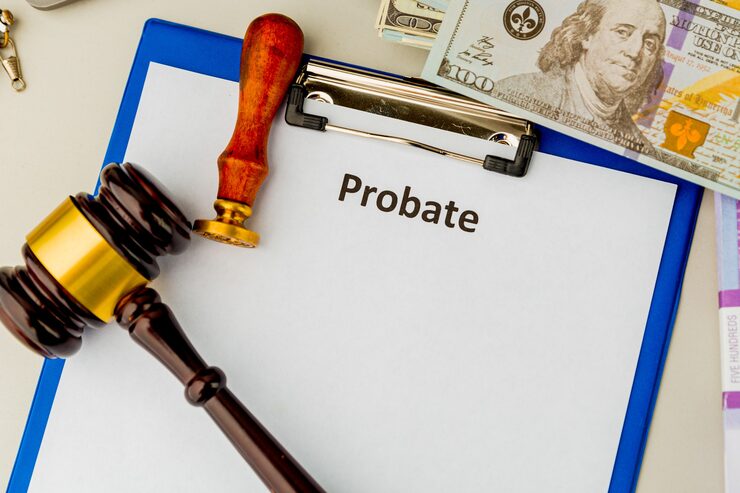Understanding How Probate Works in Florida
The probate process in Florida is the legal procedure that ensures a deceased person’s assets are identified, debts are paid, and property is distributed to rightful heirs or beneficiaries. It is supervised by the Florida Circuit Court in the county where the deceased lived at the time of death.
While probate can seem complicated, understanding the steps — and the challenges that often arise — can help families prepare for what to expect. Whether you live in Florida or are an out-of-state heir, knowing how the process works can save you time, stress, and money.
What Is Probate?
Probate is the legal process of administering an estate after someone passes away. It confirms whether a will is valid, appoints a personal representative (also called an executor), gathers and values the deceased’s property, pays debts and taxes, and distributes what remains to beneficiaries.
Florida probate law distinguishes between two main types of probate administration:
- Formal Administration – For estates worth more than $75,000 or when real estate is involved. This is a full court-supervised process that can take several months to several years.
- Summary Administration – A simplified process available when the estate’s value is under $75,000 or when the decedent has been deceased for more than two years.


How Long Does the Probate Process Take in Florida?
The length of time it takes to complete probate in Florida depends on the size and complexity of the estate.
- Summary Administration: 1 to 4 months on average
- Formal Administration: 6 months to 2 years
- Contested Estates or Complex Cases: Up to 3 years or more
Probate can be delayed by court backlogs, creditor claims, property disputes, missing heirs, or unclear estate planning documents. Having a skilled Florida probate attorney can help keep the process on track and prevent unnecessary delays.
The Step-by-Step Florida Probate Process
Filing the Petition
The process begins when the will (if there is one) and a Petition for Administration are filed with the Florida probate court. This officially opens the estate.
Appointment of the Personal Representative
The court appoints a personal representative (executor) to manage the estate. This person is responsible for notifying heirs, creditors, and the court of key actions taken during probate.
Notification of Creditors
Florida law requires that creditors be notified and given a chance to make claims against the estate. This includes publishing a Notice to Creditors in a local newspaper and directly notifying known creditors.
Inventory and Valuation of Assets
The personal representative must identify and value all assets — including real estate, bank accounts, vehicles, and personal property — and file an inventory with the court.
Payment of Debts and Taxes
Valid creditor claims are paid, along with any outstanding taxes, funeral expenses, and court costs.
Distribution of Remaining Assets
Once all obligations are settled, the remaining estate is distributed to beneficiaries according to the will or, if there is no will, according to Florida intestate succession laws.
Closing the Estate
The personal representative files final documents and obtains court approval to close the estate, completing the probate process.
Common Issues That Arise During Florida Probate
Even with a valid will, probate can lead to disputes and complications. Common problems include:
- Will contests: Disagreements over the validity of the will due to undue influence or lack of capacity.
- Executor misconduct: Failure to properly manage estate assets or provide transparency.
- Creditor disputes: Conflicts over debts, liens, or late claims.
- Hidden or missing assets: Property that is not disclosed or discovered late in the process.
- Beneficiary disputes: Disagreements over distributions or valuations.
These issues can prolong probate, increase costs, and create lasting family tension. Legal guidance can help resolve disputes efficiently and protect your inheritance rights.


How the Florida Probate Process Differs from Other States
Florida’s probate laws are unique in several ways:
- Mandatory attorney involvement: In most cases, Florida law requires the personal representative to be represented by a licensed Florida attorney.
- Homestead property protections: Florida’s homestead exemption gives special legal protection to the decedent’s primary residence, often keeping it out of reach of most creditors.
- No independent administration: Unlike some states, Florida requires court supervision for nearly every formal estate — there’s no automatic “self-managed” probate.
- Specific deadlines for creditors: Creditors in Florida generally have 90 days after notice is published to file a claim.
These distinctions make it important to work with an attorney experienced specifically in Florida probate law.
Out-of-State Beneficiaries and Florida Probate
Many heirs and beneficiaries who inherit Florida property live outside the state. While this is common, it can make the process more complex.
Here’s what out-of-state beneficiaries should know:
Communication:
Most of the process can be handled remotely via mail, email, or video calls with your Florida attorney.
Out-of-State Personal Representatives:
You can serve as a personal representative if you are a family member, even if you don’t live in Florida — but Florida courts generally do not allow non-family residents of other states to serve.
Property Transfers:
Real estate located in Florida must go through Florida probate, even if the deceased lived elsewhere.
Multiple Jurisdictions:
If the deceased owned property in another state, a separate “ancillary probate” proceeding may be required there.
Costs of the Probate Process in Florida
Florida probate can be expensive. Costs typically include:
Attorney’s fees:
Often 3% of the estate’s value or hourly rates depending on complexity
Court filing fees:
$400–$500
Appraisal and accounting fees:
$1,000+
Personal representative’s fee:
Up to 3% of the estate value
Miscellaneous costs:
Certified copies, publication fees, and tax filings
Because of these costs, some clients choose contingency probate representation, where attorney fees are only paid if money is successfully recovered.
How to Simplify and Speed Up Florida Probate
To make probate as efficient as possible:
- Ensure all necessary documents (will, death certificate, asset list) are available
- Notify all interested parties early
- Keep records of all financial transactions
- Hire a qualified Florida probate attorney familiar with local court procedures
With proper guidance, even complex or out-of-state cases can move forward smoothly.

Get Help Navigating the Florida Probate Process
If you’ve lost a loved one and need help navigating the probate process in Florida, our experienced probate attorneys can guide you every step of the way.
We represent heirs, beneficiaries, and executors in Miami, Tampa, Orlando, Fort Lauderdale, Jacksonville, and across the state.
Call us today at 123-123-123 or request a free consultation to learn your rights and options under Florida probate law.
